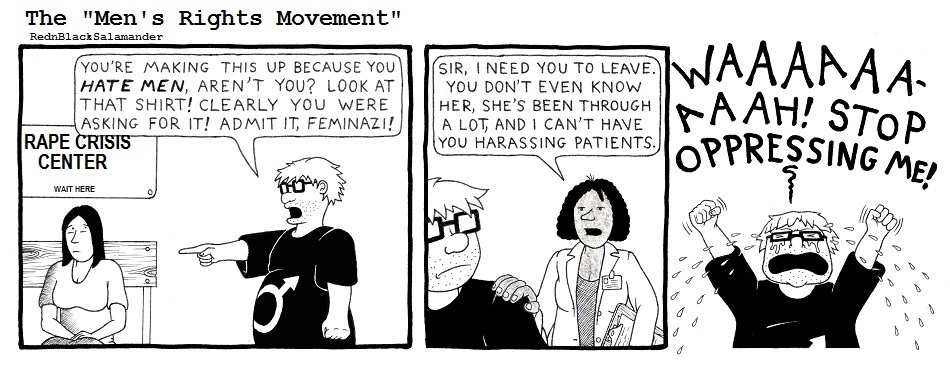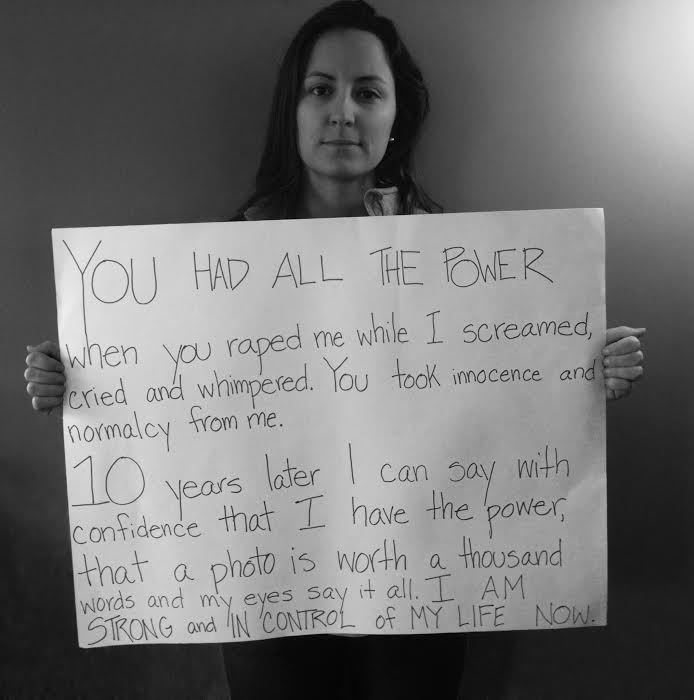I had previously started writing a piece in response to the Tal
Fortgang “check your privilege” article.
I wanted to discuss the plethora of space and attention the media (and society)
gives to the white, male, cisgender, able-bodied, heteronormative perspective.
I briefly stopped working on that article when news of UCSB’s campus
attack became public. I immediately thought that Elliot Rodger’s story was perhaps
more deserving of being critiqued. This was when I realized the great
similarities between these two men (albeit very far away on the violence
spectrum) that can be linked to underlying societal de-valuing of trans- and
cis- women. I will address these two situations separately before
critiquing the reinforcement of hegemony that allows us to avoid blaming
ourselves for the rampant presence of continuous threats of rape and death.
For Tal, being told to “check his privilege” is the worst
part of his college experience. Tal’s rejection of his inherent privilege
denied the negative experiences of others (at college or elsewhere) of racial
discrimination, violence, and sexual assault. The stories of so many women,
especially transwomen and women of color, are forever swept under the rug, but
the whining of a Princeton-educated, non-struggling story of Tal are lauded as
examples of how society is forcing white people to feel guilty “just
for existing.” It is quite disheartening to know that one’s story will not
be believed simply because one does not have the access to media forums in
which to express them. Or, even when those stories are told, they are often the
white, cis-woman perspective. Or, when women are threatened, we still rely on the charity of men to raise the alarm and offer suggestions.
I praise the strong, powerful women at other institutions,
such as USC
and Northeastern
(my current and previous institution of higher education) that have shared
their story and fought back against institutions that deny women the right to
say no, and their legal recourse against perpetrators. I was not strong enough
to tell my story. Even with my high level of privilege, I was terrified of the
consequences of reporting my sexual assault by a trusted friend at Northeastern.
The word “survivor” never rang true for me. “Survivor” would imply that I had
faced a natural force, like a tsunami or a disease, and overcame the event and
devastating effects. I didn't, though. I
was faced with a human force, a man in complete control of his actions, a
friend, who I had given my trust to, had made a conscious decision to act,
devalue our friendship, and violate my body. This is, unfortunately, the story
of so many women in collegiate settings, but so few are given the space to
share their stories, or feel that they can freely and without consequence equally
access our rights.
 |
| Retrieved from this site |
Elliot Rodger’s story is also garnering national attention,
including his manifesto where he declares his hatred of women and need to enact
revenge through murder. Despite such plain, obvious language, some people have
come to Rodger’s defense
by displacing blame from his white, male privilege to mental
illness. One of my colleagues at USC, Francesca Marie Smith, argued that
mental illness can be used as an argumentative strategy to undermine the
culpable of agents in a given situation. Examining the 2011 shooting of Gabby
Giffords, she concluded that a focus on the mental capacity of Jared Lee
Loughner derailed larger conversations about the societal pressures and
political polarization that may have fueled the attack.
Elliot should not be memorialized, lauded, made a hero, or
removed from blame. This was a calculated, terrorist attack on women as a whole because he
had been told “no.” He believed he had a right to the female body as sexual
property and projected his own shortcomings on the failure of (female) others. People
should not watch his videos or read his manifesto: let us not immortalize a misogynist
who decided to take life instead of realize the privilege in his own.
 |
| Retrieved from this site |
These two stories began and ended very differently. Tal has
certainly upset people with his lack of awareness and care for the stories of
others, but Elliot has murdered. I do not wish to equate these stories; I am
not making claims about “all
men.” I am instead commenting on the attributes that they share and what
this says about our society.
Both are inherently linked to race
and gender, because they laud the white, male perspective over all other bodies. Yes, Elliot was mixed race, but there is no denying his feelings of privilege and superiority that accompany this perspective. Both believe in the power of their privileged body to make decisions and that they have the right to remove of agency from others. Tal and Elliot are not allowed to be told “no,”
especially not by people of color or women. Tal cannot be told to “check his
privilege” and Elliot cannot be denied sex. These are the autonomous decisions
of others that put into question the privilege that Tal and Elliot could not
even recognize they had (being blind to their own condition and the conditions
of others).
 |
| Retrieved from this site |
These men are just two chapters in the larger story of a society
that allows their privilege to continue unabated, that celebrates and defends
them, and that prevents us from looking inward at our own complicity. If it the
fault of people who question Tal’s struggle, Elliot’s mental condition, or my inebriation,
then society as a whole is declared “not guilty.” We can live in the façade of
a world where these events are mere peppered outliers in a properly functioning
society, instead of symptoms of a diseased organism. Walking down the street or
taking public transportation is an opportunity for women to be yelled at, groped, followed, threatened, or even worse. Even spending time
with trusted friends and family members can lead to the violation of the
female body. Althusser's police officer defines the power structure and everyone's position in it by addressing someone, "Hey you!" When I walk down the street and am called "bitch" while being grabbed from behind, that also defines me without my permission, reaction, or ability to subvert.
 |
| Many more stories of struggle and healing at Project Unbreakable |
We cannot let these stories be drowned out by the mob quick
to defend the current system. We must give space and attention to those that
are fighting for change and awareness of larger issues. We perhaps cannot
change the minds of current misogynists or denialists who will resist at all
costs the crumbling of the society that preferences them. But, with increased
effort, we may be able to usher in new generations brought up in a society that
recognizes the issues that face the majority of us and fosters a culture that
is actively trying to change it.

No comments:
Post a Comment